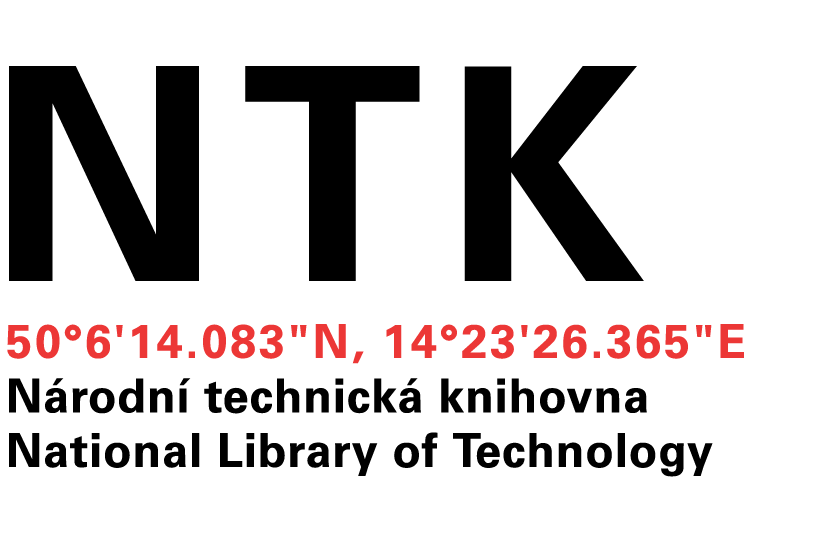Strategická podpora vědy: Hlavní směry a výzvy
Cílem konference je ujasnit si základní otázky podpory výzkumu v českém prostředí a kriticky zreflektovat parametry naší diskuse o nich, včetně jejich vazby na vyhodnocování dostupných dat a schopnosti definovat státní zájem. Cílem je proto otevřít a doplnit klíčové perspektivy dlouhodobé podpory výzkumu a jeho strategického řízení.
Mezi klíčové otázky patří ty, které do určité míry v odborné (a částečně i politické) debatě již rezonují do určité míry nyní, jakkoli ne vždy se jim dopřává systematické reflexe. Typicky se jedná o oblasti podpory základního a aplikovaného výzkumu, poměrů institucionální a účelové podpory, popř. základního benchmarku, vztahující výdaje na výzkum např. vůči makroekonomickému údaji – typicky podílu na HDP, popř. průměru zemí OECD nebo srovnání s relevantními zeměmi, a to jak výdajů celkových, tak veřejných. Tato témata nepochybně reflektují řadu dilemat a výzev diskuse o podpoře vědy a disponují přirozenou a veřejně-politicky srozumitelnou signalizací o stavu našeho systému výzkumu. Ze stejných důvodů, tedy určité notoriety opakujících se tezí, ale hrozí, že nám další rozšiřující perspektivy unikají a plasticita obrazu stavu podpory výzkumu pak není kompletní. Cílem konference proto musí být kriticky zhodnotit parametry současné debaty a nabídnout témata vztahující podporu výzkumu k dalším tématům, jako např. podpora špičkové vědy, oborová struktura podpory, profilace ČR v mezinárodní spolupráci (zejména Big Science a vědecké diplomacii) a v neposlední řadě i schopnost využívat synergického efektu zapojování do evropských multilaterálních schémat a obecně unijních programů. Podpora výzkumu vyjádřená strukturou a výší financování je bytostně spojena i se schopností jejího vyhodnocování, a to zejména s cílem nalezení dlouhodobějších směrů a konsensu na tomto směřování. Konference zároveň může být vhodnou příležitostí či příspěvkem do definování zájmu státní správy v této oblasti.
Výběrovost/podpora špičkové vědy. Jedním z hlavních znaků efektivního financování je cílená podpora špičkové vědy, resp. zabezpečení takových mechanismů, které dostatečně cíleně a selektivně umožní rozvoj mezinárodně konkurenceschopných týmů a vědců. Zároveň takových mechanismů, které vhodně doplňují institucionální nástroje výzkumných organizací a jejich péči o talenty ve vztahu k národním zdrojům, a také zároveň umožňují smysluplnou podporu ve všech fázích kariéry špičkových vědců. V ČR se v poslední době zintenzivnila diskuse o podpoře excelence – jaké jsou možnosti rozvoje této oblasti ve vztahu k systému podpory vědy?
Oborová struktura. Financování prismatem oborové skladby (např. i ve vztahu k produktivitě a mezinárodnímu srovnání) je významným datovým vstupem do debaty o podpoře výzkumu. Projektuje se do něj historická stratifikace financování včetně vazby na hodnocení výzkumných organizací, ale i struktury poskytování účelové podpory a oborových politik příslušných rezortů. Disponujme adekvátní a solidní datovou základnou pro popsání a detailní intepretaci současného stavu – jaká je zde vazba na strukturu výzkumných organizací v jednotlivých segmentech (VŠ, AV ČR a rezorty). Je oborová prioritizace s konsekvencí na financování možná? A pokud ano, jak se má propsat do systému financování a jeho vyhodnocování?
Synergická práce se zdroji. Nejedná se jen o techniku vícezdrojového financování, ale i o nástroj formování výzkumu, zejména jako tlak na využívání vybudovaných kapacit, synergické financování využívání principů „Seal of Excellence“, zapojování se do partnerství či vytváření konsorcií. V posledních letech ČR nastavila řadu možností jak využívat synergie mezi státním rozpočtem, ESIF a unijními programy v různých kombinacích. Umíme na tomto stavět do budoucna? S tímto je spojena i otázka role neveřejných zdrojů a hledání nových nástrojů a způsobů podpory.
Mezinárodní schémata – Big Science a diplomacie. Podpora v této oblasti slouží mj. jako reakce na nové typy konsorcií a světový či evropský způsob „organizace výzkumu“. Pomáhá profilaci zapojení ČR do multilaterálních projektů, včetně masivních investic do state-of-the-art facilit, a sítí s významným politickým a ekonomickým přesahem. Zároveň pomáhá s diverzifikací výzkumného prostředí. Přes zjevné bonusy je její finanční náročnost (i z hlediska dlouhodobé tvorby rozpočtu) politicky složitě uchopitelná a představuje do budoucna značnou výzvu.
Analýza nástrojů – vyhodnocení a diverzifikace. Vyhodnocování se často řídí perspektivou oddělených nástrojů či kapitol. Pro efektivní vyhodnocování je třeba základní průřezové diverzifikace zohledňující typicky kategorie: páteřní a podpůrné tituly, „vysoko-rozpočtové“ a „standardní“, centralizované, či decentralizované (na institucionální úrovni). Vyhodnocování je klíčové z hlediska eliminace duplicit, hledání návazností a optimální úrovně intervencí, definování očekávaného impaktu.
Z uvedených témat poté vyplývají výzvy pro budoucí strategické řízení podpory výzkumu, a to zejména těchto oblastí, která bude KRECon adresovat:
- Jsme připraveni reálně diverzifikovat nástroje a jejich řízení?
- Jak se vypořádáme s „věkem konsorcií“, budeme připraveni na nezbytné podmínky sdílení a propojování řízení náročných facilit?
- Jak budeme investovat (obnova vybavení) po konci či redukci evropských zdrojů (ESIF, RRF,…)?
- Jaké budou možnosti oborového cílení podpory?
- Jaká bude strategie a formulace zájmů ČR pro financování svého mezinárodního působení?
- Jak budeme konstruovat řízení systému výzkumu z hlediska struktury státní správy?
- Jaká je role soukromých zdrojů podpory výzkumu?
Co je to KRECon
Každoroční konference Knowledge, Research, Education Conference, zkráceně KRECon, se koná v Národní technické knihovně od roku 2010. Záměrem konference je sdružovat mezinárodní a národní odborníky a další relevantní aktéry v sektoru vysokého školství a VaVaI a poskytovat jim prostor pro diskuzi na nová, dosud nevyřešená témata (alespoň v ČR) a případně otevřené provokativní otázky.
Podrobnosti
Konference KRECon probíhá v českém jazyce se simultánním tlumočením do angličtiny.
Vstup na konferenci KRECon je zdarma.
Programový výbor
- Pavel Doleček (náměstek ministra pro vědu, výkum a inovace) - předseda
- Martin Svoboda (ředitel, Národní technická knihovna)
- Martin Loebl (předseda, Učená společnost České republiky)
- Milan Pospíšil (rektor, Vysoká škola chemicko-technologická v Praze)
- Štěpán Jurajda (CERGE-EI)
- Ladislav Krištoufek (prorektor pro vědeckou a tvůrčí činnost Univerzity Karlovy)
Organizátorem konference KRECon 2024 je Národní technická knihovna (NTK). Konference se koná pod záštitou ministra pro vědu, výzkum a inovace Marka Ženíška a Ministerstva školství, mládeže a tělovýchovy.


